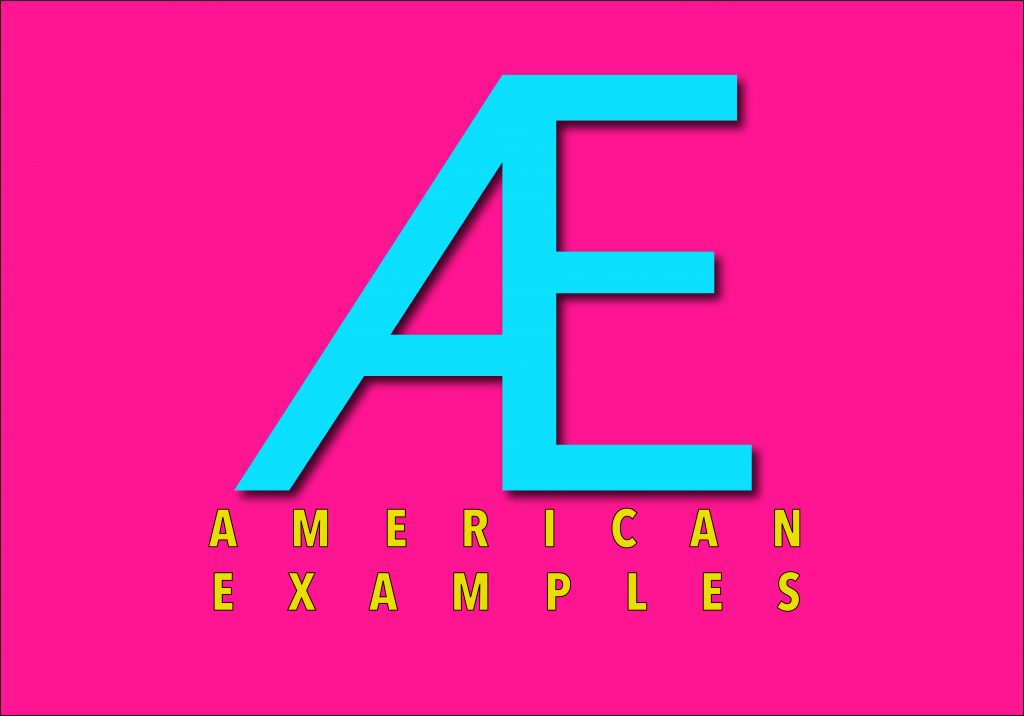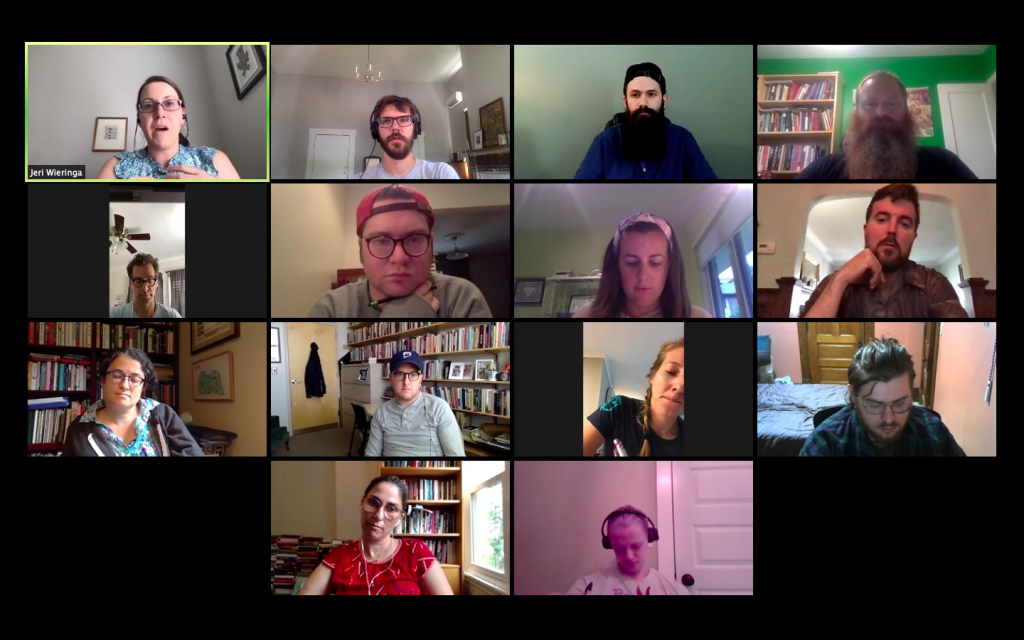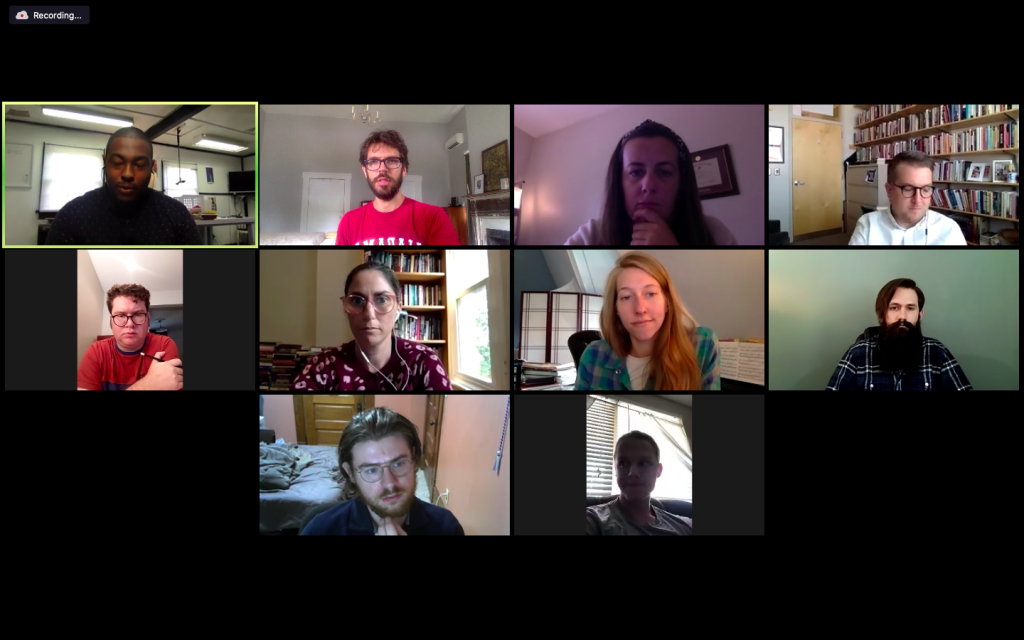
When we announced the American Examples program, funded by a grant from the Henry Luce Foundation, we were super excited about the three workshops we would be offering in 2020. We were able to hold one of them in person in early March. Then the world changed, and, with it, our plans.
Many of the REL faculty pitched in late in the spring and into the early summer to adapt to our new COVID reality by hosting a series of informal Zoom discussions about teaching with our 2020 AE participants (and even a couple 2019 AE folks). The discussions offered everyone a chance to share how they were experimenting with remote teaching and how to better prepare for their fall courses. I think everyone involved found the discussions fruitful.

This fall we are adapting again, though with greater preparation. Rather than the planned face to face workshop on public humanities, we have shifted to a new model. Beginning last week, the #AE2020 cohort has been joining myself and another REL faculty for informal conversations about the public humanities and how we think about them here in our department. Last week Prof. Jeri Wieringa joined us to talk about the role of digital platforms and tools in public humanities and the relationship between public humanities and digital humanities. This week, Prof. Richard Newton spent time talking about how scholars can craft a public persona and how to manage things as an online public scholar of religion. Next week, Prof. Nathan Loewen will join us for our final conversation to discuss the REL 502 Public Humanities Foundations course he is teaching and how public humanities relates to both the graduate and undergraduate classroom. The first two conversations have proven useful and fun and we look forward to another great one next week.

Along with these conversations, the 2020 AE participants will be working on producing a series of short accessible videos on key terms in the study of religion. In these videos the participants will take a term that is useful to them in their research (text, canon, law, ritual, etc.) and use an example from their research to explain the term. The idea being that scholars who study things in times and places outside the United States might also use that term and that teachers or interested members of the public might find their explanations useful. We hope these videos will reach a public audience, via a new AE YouTube channel, but we also think they will be useful in introductory religious studies courses. After all, the classroom is probably the public space scholars of religion have the most frequent access too. Our students are the public too.
And on top of all of this, the 2021 AE cohort is just around the corner. Keep your eyes peeled for a 2021 call for participants for a newly designed remote version of AE. That should be out very soon.